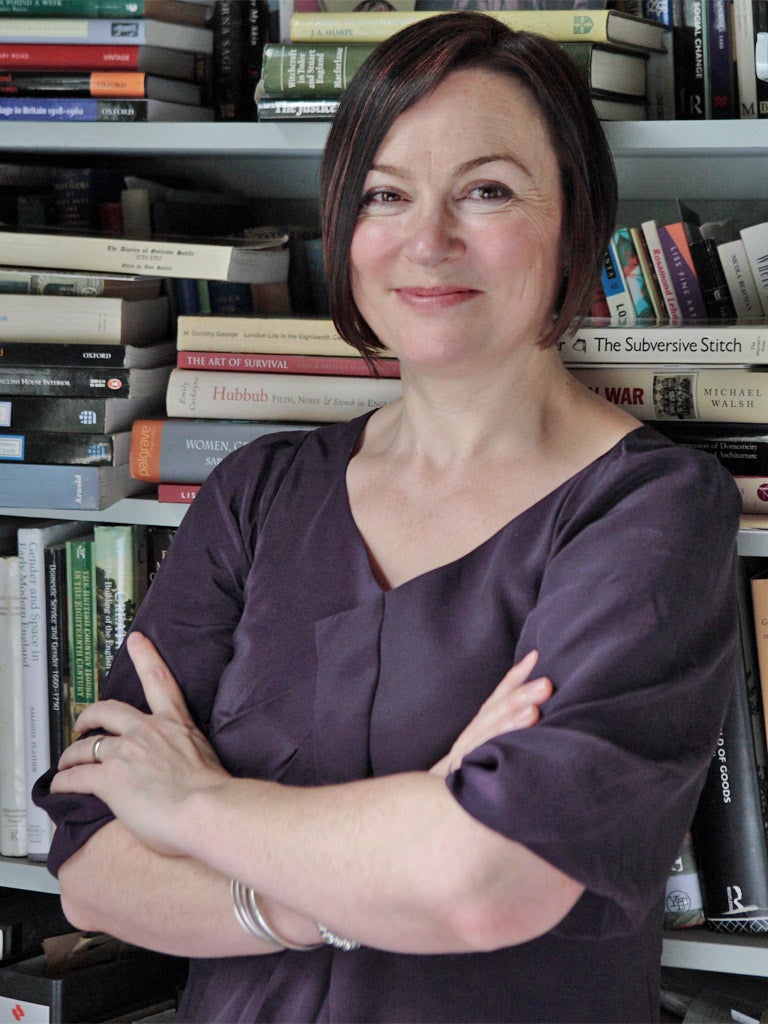The Week In Radio: It takes a woman to sort out the men from the boys

Your support helps us to tell the story
From reproductive rights to climate change to Big Tech, The Independent is on the ground when the story is developing. Whether it's investigating the financials of Elon Musk's pro-Trump PAC or producing our latest documentary, 'The A Word', which shines a light on the American women fighting for reproductive rights, we know how important it is to parse out the facts from the messaging.
At such a critical moment in US history, we need reporters on the ground. Your donation allows us to keep sending journalists to speak to both sides of the story.
The Independent is trusted by Americans across the entire political spectrum. And unlike many other quality news outlets, we choose not to lock Americans out of our reporting and analysis with paywalls. We believe quality journalism should be available to everyone, paid for by those who can afford it.
Your support makes all the difference."In his secret fantasies," said the historian Amanda Vickery in her Radio 4 series Amanda Vickery on… Men, "I wonder if every British man isn't something of a hero, questing, intrepid, undaunted." Really? Most of my male friends' idea of courage doesn't extend much further than venturing out to the chip shop at pub chucking-out time. But what do I know? Perhaps my ownership of ovaries renders me blind to man's primal instincts.
This week, in the fifth part of her investigation into 800 years of male archetypes, Vickery was looking at the explorer, specifically the rugged, ruddy-cheeked adventurers of centuries past who embodied the perceived qualities of Britishness. Visions of leech-smothered alpha males hacking through jungles with machetes, and ex-public schoolboys staggering across ice-caps, leaving trails of frost-bitten fingers in their wake, wafted into view as Vickery got to grips with the male imagination and its love affair with old-school derring-do.
I loved just about everything about this series. In previous episodes, Vickery has focused on the sailor, a potent symbol of masculinity who, whether impossibly aristocratic or a tattooed bit of rough, seems to be loved by women the world over. She has explored, with amused distaste, the 18th-century lover, given to creating landscaped vaginas in the grounds of their homes and detailing their exploits in sex diaries, and the nihilistic knight who would return home after four years of pillaging and bemoan his lady's newly acquired wrinkles.
She has delighted us with tales of male courtiers fretting about the shape of their legs, and has revealed how the masculine hero is as much as a social construct as the female glamour model or the meek housewife. With the help of letters, film excerpts and assorted contributors, she has explored long-standing stereotypes and exploded them, and has done so with intelligence, equanimity and a sense of the absurd. These kind of stories are rarely told, at least by a woman.
There have been complaints that Vickery isn't as vocal in her views as she might have been, and that she is too reliant on the testimony of experts when she herself is more than qualified to pass judgement. In fact, she is thoughtful, engaging, willing to seek out other perspectives while being perfectly clear on her own, such as when talking to the American adventurer Wade Davis. As he blathered on about the male search for authenticity, danger and near-death experiences, Vickery noted that the majority of women experience all this and more in childbirth. "That's our brush with death," she noted, "and we don't have to go up mountains to find it."
But Vickery's series isn't about the battle of the sexes, it's about the battle between old and new models of masculinity. The modern metrosexual male, with his dishwasher-stacking expertise and fondness for personal hygiene, has little in common with the he-man types of the past. We heard how explorers such as Scott of the Antarctic hankered for new experiences, to conquer new territories and test their masculinity even if it meant meeting their death. All very inspiring, I'm sure. But there was, it was speculated, another reason why Scott and co were prepared to travel to the ends of the earth, and that was to escape women and the suffocating domesticity of Edwardian life.
This not only reveals New Man to be considerably more dependable than Explorer Man, it makes Antarctica the early-20th-century answer to the garden shed. Reflecting on Scott's achievements, it was pointed out that no woman would set foot in Antarctica for another 23 years. Given how Scott and his fellow adventurers met their ends – as human popsicles in a vast snowdrift – I wonder who's the real winner?
Join our commenting forum
Join thought-provoking conversations, follow other Independent readers and see their replies
Comments